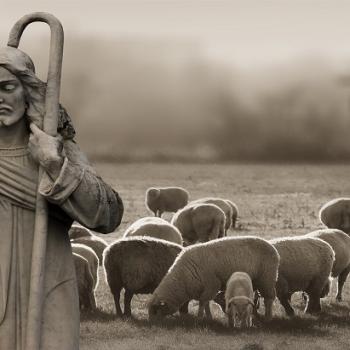Even as a Progressive Christian myself, I’ve been wondering where I “fit in” on the spectrum during my research on the ongoing debate over deconstruction. I also don’t know for sure if there’s an objective definition of Progressive Christianity. I know that it’s been an ongoing reaction and result of people’s deconstructing their faith, especially when they escape a toxic church.
What Is Progressive Christianity?
There’s been a lot of (often tense) debate between apologists and Progressive Christians about the validity of our faith. I’ve watched several different YouTube videos and read various online articles from both sides. A recurring theme I’ve seen is apologist sources accusing Progressive Christianity of no longer following “true Christianity”. This is often a reference to this verse from 2 Timothy:
“For the time is coming when people will not endure sound teaching, but having itching ears they will accumulate for themselves teachers to suit their own passions.” (2 Timothy 4:3)
To some degree, I do understand the intention behind the accusation. We all must take care that we’re not simply looking for teachers that will say lovely things that we want to hear. A recent example would be the Russian Orthodox Church (specifically Patriarch Kirill of Moscow) asserting that Russia’s invasion of Ukraine is an analogy for combatting “gay pride parades”. Way to fuel Putin’s anti-gay agenda, my man!
After perusing YouTube and listening to various apologists speak on this debate, I think I have a better understanding of what they’re aiming at. Overall, most (reasonable) apologists want to ensure that Christians are being objective. One of the most prominent apologist voices in this regard is Alisa Childers.
Seeking Objectivity
Alisa Childers speaks out of concern that her fellow Christians are being misled. I believe I heard from her on some of her videos that she encountered a Progressive Christian leader earlier in her faith who turned out to be toxic. It would be understandable if she’s seeking to prevent other Christians from losing their way due to similar false teachers.
Something that stood out to me the most from this conversation was Alisa expressing concerns that Progressive Christians don’t see the Bible as fully inspired by God. In all honesty, I appreciate her mentioning this because when it comes to certain parts of the Old Testament, this is something that I’ve been struggling with myself. Specifically, I’ve had a tough time viewing the parts demanding that non-virgin daughters be stoned (mentioned in Deuteronomy 22) as God’s inspired Word for us.
I’ve been mulling this over for some time now, and during one prayer moment I had with God, the term “patriarchal bias” came into my head out of nowhere. My fear (and, as an LGBTQ+ Christian, constant source of anger) is that men in power inserted their own bias into the Bible to assert their will above all. Am I blasphemous for believing that God who is Love couldn’t possibly have demanded that girls (potentially including victims of sexual violence) be stoned to death if they weren’t virgins?
Literally Though!
Yet another issue that I recently came to terms with (in my own deconstruction/reconstruction) is the hard issue of genocide in the Bible. Instead of hearing excuses for these horrifying scenes, we need objective explanations. I found one here, which explains that what we’re reading here is hyperbolic language used to say that the Israelites needed to achieve absolute victory.
I can’t stress this enough, especially as an English major, folks, connotation matters! You can’t demand that the Bible be “taken literally” when whoever was in charge of these translations chose to use these figures of speech. This choice has caused crises of faith for so many people, and it’s unfair to dismiss these concerns as “heresy” or even “a failing of Progressive Christianity”.
If this was an attempt at metaphorical understanding, then my friends, the good intentions could’ve had better delivery. All I can hear right now is Timon’s mom from Lion King 1.5 berating Rafiki for using metaphors with her literally-interpreting son.
Better Understanding
One of my favorite Christian YouTubers is Brenda Davies, who runs the channel God is Grey. Brenda strives to approach the hardest topics in our faith with both diplomacy and objectivity. What I like most about Brenda is that she avoids belittling those who don’t share her viewpoints.
This is her commentary on Alisa Childer’s interpretation of Progressive Christianity:
I love this quote from Brenda:
“I truly believe the main distinction between apologetics and Progessive Christianity is that Progressive Christians are simply saying, ‘Hey, these beliefs or positions you are defending happen to be hurting people profoundly!'”
Ah, and unfortunately, it bears mentioning this snide quote Brenda records of apologist Allie B. Stuckey:
“Change the world…by posting a black square.”
(In response to the Facebook movement in the summer of 2020 where many people changed their profile pics to black squares in support of justice for George Floyd and Black Lives Matter.)
I am truly sorry to Alisa for the mockery she’s faced for her beliefs. It doesn’t matter if somebody doesn’t see eye-to-eye with you, that’s never an excuse to slander them and commit verbal sins against them.
But as Brenda pointed out in this video, it’s extremely hypocritical for Allie to remark about Progressive Christians being “mean” when she’s displayed that same meanness, without hesitation.
Brenda strives to have Alisa understand that it isn’t fair to make generalizing remarks about what Progressive Christians believe. While Alisa believes that the “doctrine” of Progressive Christianity rejects Jesus’ death for our sins and also His resurrection, Brenda firmly states otherwise.
It’s like Brenda says here: Progressive Christianity is a movement without a core set of doctrinal beliefs. Progressive Christianity has been an ongoing reaction to the moral failures of the Evangelical Church, which keeps fueling deconstruction with its refusal to be held accountable.
Progressive Christianity and LGBTQ+ Inclusion
I’m forever grateful for Brenda Davies and the work she’s been doing to help the worldwide church understand the importance of LGBTQ+ inclusion. As a gay Christian, I hate that our faith is constantly being called into question, on whether or not we genuinely love God, or even if our faith is valid to begin with.
(It bears note for the sake of objectivity that while Allen Par quotes 1 Corinthians 6:9 to back up his view, he makes sure to note that straight folk willfully ignore all of the sexual sins noted in that same passage.)
With that disclaimer being said though, it really irks me that he says that gay Christians don’t get to “self-indulge” while straight Christians struggle with self-control. It also irks me that he openly compares self-affirming gay Christians with men who “beat up on women”.
In regards to his comment about gay Christians needing to practice self-control, I take issue with that. Evangelical leaders (not necessarily Allen) had a seemingly hard time telling our previous “Christian” president to practice self-control, especially with the verbal sins (e.g. lying about January 6) that come out of his mouth.
“But what comes out of the mouth proceeds from the heart, and this defiles a person. For out of the heart come evil thoughts, murder, adultery, sexual immorality, theft, false witness, slander.” (Matthew 15:18-19)
To be clear, it’s not Allen’s fault whatsoever that there are double standards in some sects of Christianity about what’s considered to be sin. That being said, this issue speaks to the ongoing cherry-picking that fundamentalist Christians employ to defend their beliefs on homosexuality. This is a practice that cuts out the vital context needed for understanding certain Biblical passages.
Context Matters
In terms of missing context, when readers read Romans 1:18-32, they’re told to assume that this explicitly condemns homosexuality. After reading up on historical research about this time period Paul witnessed when he wrote Romans, it’s more apparent that he was discussing promiscuity. Perhaps even blatant orgies, based on the context in this verse also from Romans:
“Let us walk properly as in the daytime, not in orgies and drunkenness, not in sexual immorality and sensuality, not in quarreling and jealousy.” (Romans 13:13)
After doing some intensive Bible/apocryphal/web research last summer initiated by a certain passage in the Second Book of Enoch, I found hard proof that the verses so often used to condemn LGBTQ+ folk are mistranslations. Mistranslations of Biblical writers calling out the sins of shrine/cult prostitution, pedophilia (aka pederasty in Grecian practice), and overall promiscuity.
This has been an ongoing source of cynicism for me. After doing this research, my assumption is that the burden of responsibility here is on whoever translated the original texts in non-English languages into these phrases. We LGBTQ+ folk don’t appreciate being wrongfully associated with the pagan sexual immorality/socially endorsed pedophilia seen in ancient times.
If I did my research right, then we’ve been blamed continually for sexual sins perpetuated by straight people across the ages indulging themselves in rampant adultery/promiscuity. A harsh modern analogy for this double standard is gay people being associated with pedophilia, which is statistically an issue with straight clergy/religious leaders (looking at you, Josh Duggar).
Lack of Accountability/Integrity
Do other Christians not understand how exhausting it is, constantly being told that we need to be celibate and alone for the rest of our lives? This, when straight members of the church can commit all sorts of actual sexual sin and receive comparative slaps on the wrist? Why is it that gay fidelity is so abhorrent, but straight adultery is permissible?
I recently read this article from Christianity Today investigating their own cover-up of two male leaders’ sexual sins against female coworkers. For almost 20 years, despite constant reports to their HR department about these leaders sexually harassing these women, nothing was done until new leadership came in.
When we show this kind of partiality to abusive men in power, we’ve committed Biblical injustice. Another nasty example is when Pastor Steven Anderson, who infamously celebrated the Pulse Club Massacre because LGBTQ+ people were targeted, covered up for a friend who was caught in sin:
When men like Steven Anderson blame “the gays” for sexual immorality while openly defending the actual sexual immorality of their peers, they aren’t speaking for God. It’s kind of like how so many American Christian authorities constantly shut down rightful criticism of former president Donald Trump’s chronic lying, slander, and other sins!
Heck, the man was so obsessed with lying that he tried to gaslight our country into believing the violence we saw against the D.C. officers on January 6 was nothing more than “hugs and kisses”:
We were constantly told by Christian authorities that Trump was “God’s man“, that it was so good to have a “Christian” in the White House. And people wonder why churches have become so empty in the wake of Trump’s rise to power. When it looks like certain authorities chose to worship Trump over Jesus, it explains the exodus.
Making Progress
Progressive Christianity is a reaction to the lack of accountability, honesty, and integrity in mainstream Christianity. There seems to be a special correlation between Evangelical Christianity and the growth of Progressive Christianity as a movement out of it.
We Progressive Christians seek objectivity just as much as our apologist counterparts do. It still baffles me that I’ve been seeing apologist leaders refer to Progressive Christianity (and also the process of deconstruction) as a “false religion”. I still can’t get my mind off of that TikTok video of John Cooper belittling deconstructing individuals, and accusing them of “divorcing Jesus from the Bible”.
In the end, Progressive Christianity can be seen as an embodiment of the “Neutral Good” alignment from Dungeons & Dragons. We strive to do good for all people, whether working through a system or on our own. Progressives aren’t out to absolutely dismantle organized religion; some churches, like my hometown United Methodist Church, continue to be beacons of integrity for their communities.
But there are Christian systems that have continued to fail people, and Evangelicalism is a prime offender. Time and time again, we’ve heard testimonies of ex-vangelicals detailing how they were never allowed to ask meaningful questions. When we’re vilified for seeking answers to hard questions, it impedes our ability to deepen our faith.
And perhaps above all, who can blame ex-vangelicals for wanting nothing to do with the God of Evangelicalism? The interpretation implied to show partiality/favoritism towards abusive religious authorities while simultaneously condemning those who don’t fit the Evangelical mold? Who demands repentance from those who leave the congregation, but not the corrupt members who sin without remorse?
I hope and pray that the paths of the brokenhearted lead to Jesus, that they come to know His Mercy which triumphs over fear.
Featured Image by Couleur/Pixabay
Hello, and thank you for supporting my work here on Patheos! If you’d like to support me further, please feel free to “Buy Me A Coffee” here:
















